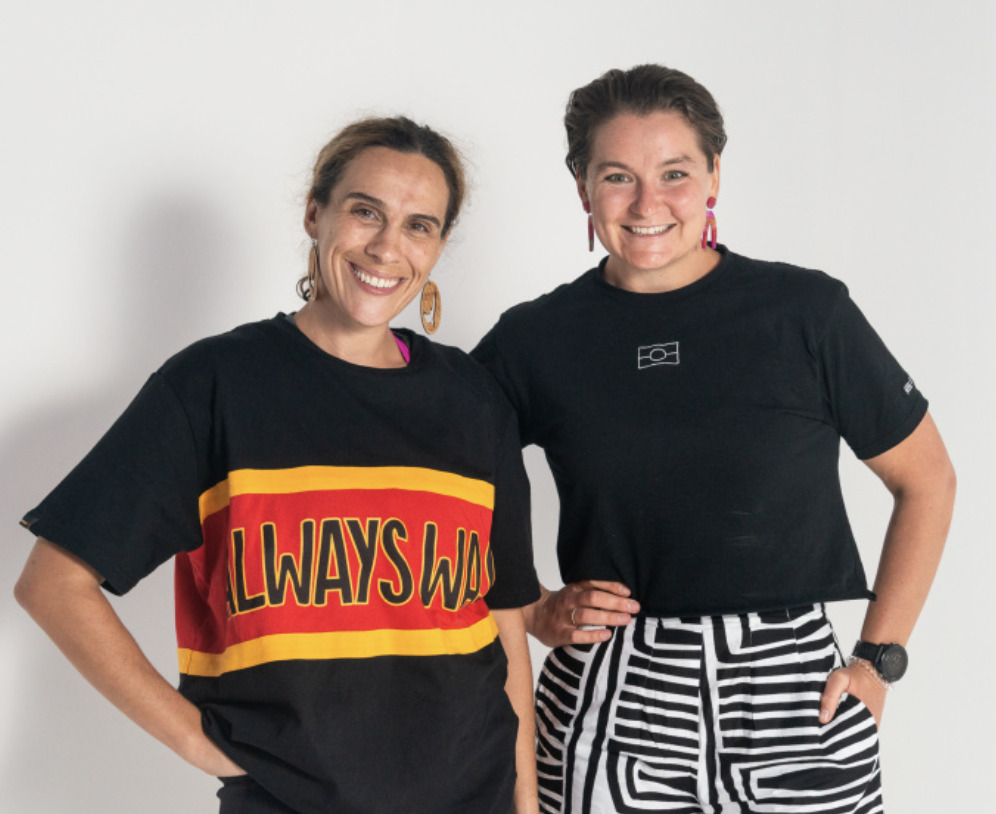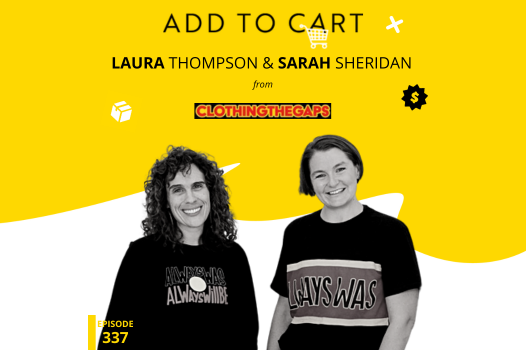In this episode of Add To Cart, we are joined by Laura Thompson and Sarah Sheridan, Co-Founders at Clothing The Gaps
Started as a COVID hustle when Laura and Sarah were in health promotion, Clothing The Gaps is now Australia’s leading Indigenous fashion brand, and arguably, Australia’s foremost brand when it comes to leading real social change. From their Free The Flag campaign (which ended up freeing the flag) to this year’s Voice referendum, Clothing The Gaps are an inspirational team who won’t stop or apologise for standing up for issues that matter to Indigenous Australians..

“There’s a deep beautiful rich history that we can speak life into in so many different moments throughout our days”
Sarah Sheridan
A long fight
(Sarah) “Gap Inc. liked one of our photos or started following us on socials. And one of the team screenshotted it and sent it through and they said, woohoo, how cool is this? And my brain was like, that’s not good. That is not good.
(Laura) And then we got the cease and desist, we got the notice of intent to defend their trademark. So we just chucked it in the drawer for a bit. And we thought, we don’t have enough money because we’re still Spark Merch. We’re in the middle of COVID. How are we gonna fight this back? Let’s just change our name. We’ll just try and come up with another name. And we did that for a bit.
But in between then, we also received a cease and desist for using the Aboriginal flag on clothing. So we started the Free the Flag campaign. We’ve got a lot of media attention from the campaigning and advocacy work that we’re doing. 150,000 people signed our petition, Pride Not Profit. And we found ourselves in the middle, dead set in the middle of a cyclone for two years, as we fought for equality with copyright, with our flag.
And we realised that the name had become much more important to us because people were recognising us, not just because of the clothes, but because of the work we’re doing in the advocacy space.”
From acknowledgment to honouring
(Sarah) “I think one of the things that I have found really, really helpful in this whole navigating the acknowledgement of country piece is that shifting the word acknowledgement to honouring has been a huge change.
And I can’t encourage people enough to shift away from… I would like to acknowledge the traditional owners of the people… you don’t need to say that. An honouring of country could be as simple as…we get to have these conversations with you on unceded sovereign Wurundjeri land. And it’s a pleasure to get to do the work that we do. And we’re grateful for the Wurundjeri elders that share their knowledge and stories with us so that we can have that connection to this land through them as well.
So it could be… this morning, I was running on Turrbal country and I was just thinking about this podcast today. Like it doesn’t have to feel stiff. It should just be weaved into a natural opening of thinking about who we are, because it’s applying that decolonization lens. For me as a white settler on this land, I was not here first. There’s a deep, beautiful, rich history that we can speak life into in so many different moments throughout our days.”
Allyship in retail
(Laura) “I would say that the nation’s divided on this issue and that racism is heavy in this country right now. And for some of the retailers, and this is public…Big W for example and Wes Farmers has come out and supported The Voice to Parliament and funded it. And they had some in-store promotion and they’ve removed it in fear of impact on the psychological safety of staff. So we’ve seen people play in the space a little bit and then retract.
I think for us and for people who are actively campaigning for a yes, it’s how do we not pull it, what are those other strategies that we can put in to support conversations in those spaces that reduce the load on staff? Recognising that a huge amount of privilege comes with those organisations to actually say it’s too hard, we’re not going to do it. Because certainly for Aboriginal people and black organisations like ours, it’s hard for us too, especially with so many Aboriginal staff that are feeling that the decision is about them and we’re still doing it.
I really believe post-referendum, I know personally I will look back on those retailers and say thanks for standing with us and I think community will as well because there’s a certain sense of bravery that comes in it but there will be a sense of respect for them as well.”
Links from the episode
This episode was brought to you by…





